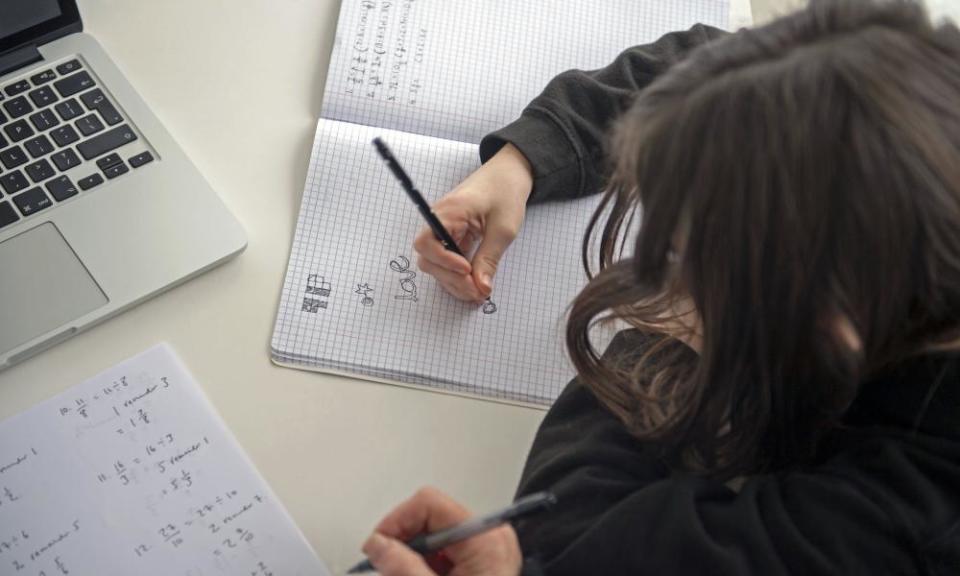Home schooling is widening attainment gap between rich and poor, finds report

Online learning has increased, with almost a quarter of primary pupils in England now doing more than five hours a day, but children in lower income households are still lagging behind with insufficient laptops, according to a report.
Research by the Sutton Trust showed schools are now better equipped to deliver remote learning than they were last March, but significant socio-economic gaps persist, which will fuel mounting fears about the growing attainment gap between disadvantaged children and their classmates.
The paper compares the amount of time children spent studying during the March lockdown, when schools were suddenly forced to close to all but children of key worker parents and vulnerable pupils, with time spent learning during the current lockdown.
At primary level, 23% of pupils are now doing more than five hours of learning a day, up from 11% at the end of March, while among secondary students, the proportion has increased from 19% to 45%. However, researchers found that, while 40% of children in middle class families were managing five hours, just 26% of those in working class households were doing the same.
The study also looked at how remote lessons are being delivered and found that more than half (54%) of teachers are now using online live lessons, compared with just 4% last March. The digital divide persists, however, despite government promises to deliver laptops to all who need them. Just 5% of teachers in state schools said that all their pupils had access to a device, compared with 54% in private schools.
Parents on lower incomes were more likely than their wealthier peers to be finding the second lockdown more difficult than the first (28% compared with 15%), the report found. It also highlighted differences in parental spending on their child’s home learning since September, with one in five of the highest earners (19%) splashing out more than £200, while almost a third of the lowest earners (31%) had spent nothing.
Sir Peter Lampl, chairman of the Sutton Trust, called for a £750m one-off pupil premium boost for the most disadvantaged. He said: “Today’s research shows that schools are now better equipped to deliver online teaching. But significant barriers remain that threaten to widen the gap between rich and poor pupils still further.
Geoff Barton, general secretary of the Association of School and College Leaders, added: “It is pretty clear from this research that there are still significant gaps in laptop provision despite the government’s programme to provide devices to disadvantaged youngsters.”
Related: 'I've nothing left to give': parents on home schooling in lockdown
A Department for Education spokesperson said: “We are aware of the additional challenges faced by disadvantaged children during this crisis, which is why we are providing 1.3 million laptops and tablets for those who need them most, with more than 800,000 of these delivered already, alongside access to free mobile data for disadvantaged families.
“It is encouraging to see the substantial increase in teachers providing online live lessons for pupils during this lockdown.”

 Yahoo Movies
Yahoo Movies 